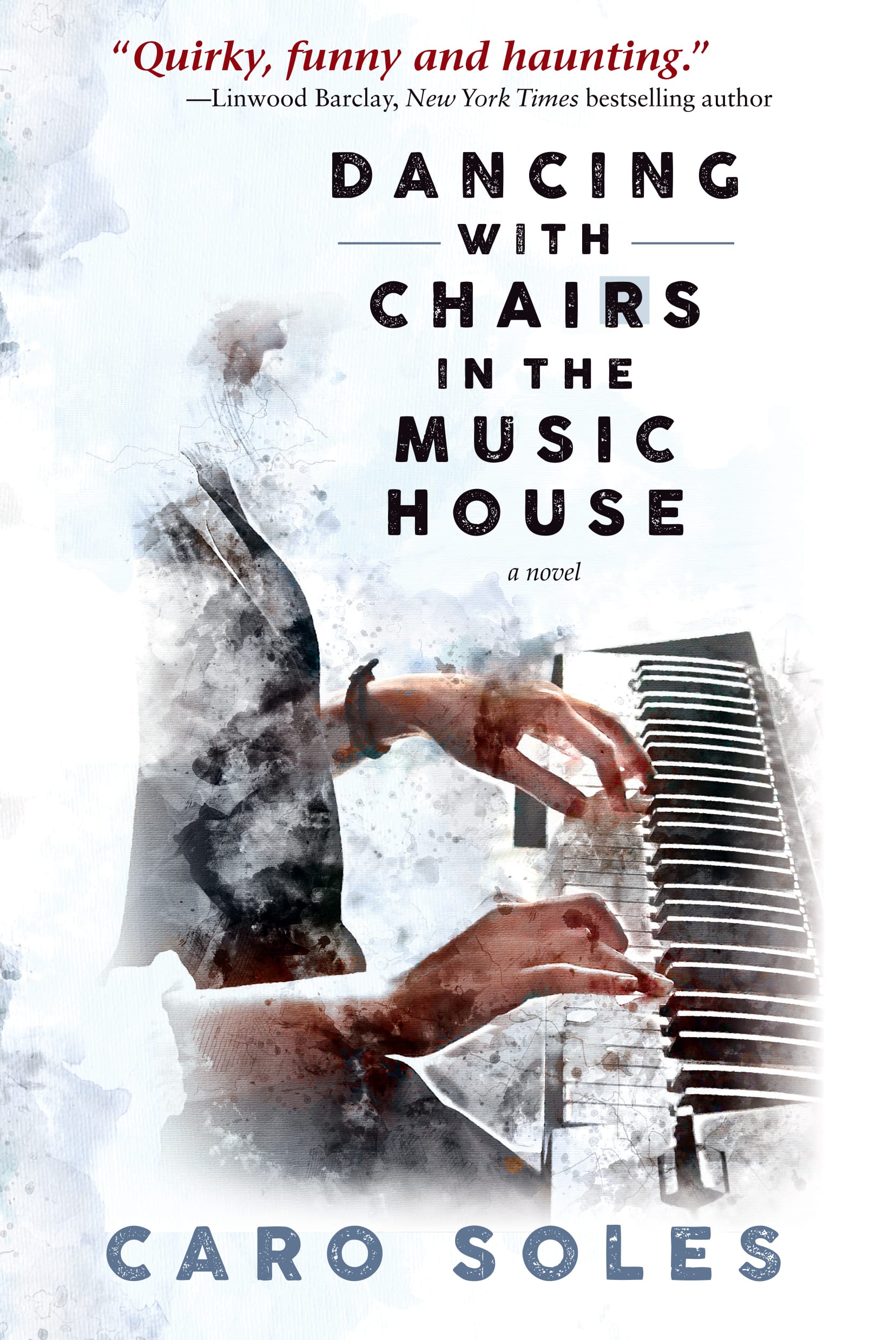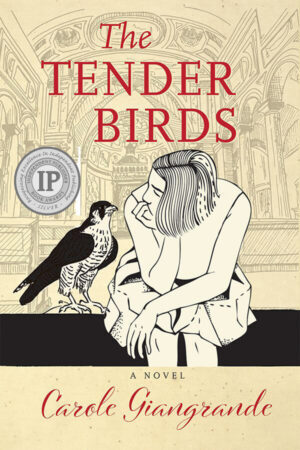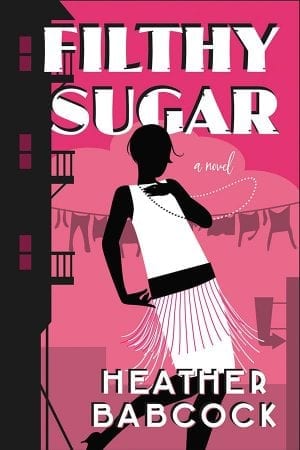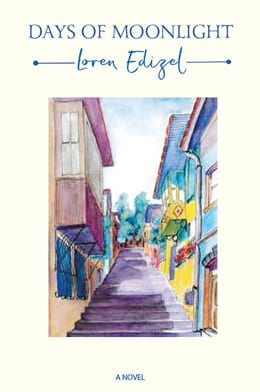Winner, 2021 IPPY Bronze Medal for Canada-East – Best Regional Fiction
Precocious ten-year-old Vanessa Dudley-Morris knows lots of secrets. In 1949 when she and her family are forced to move into two rooms on the second floor of 519 Jarvis Street in Toronto, a genteel but somewhat rundown rooming house owned by a reclusive pianist, she learns a lot more.
Despite the family’s drastically reduced circumstances, her parents struggle to keep up their old standards. Threatened by blindness due to an eye condition, Vanessa is kept at home, tutored by an erratic succession of eccentrics, some with questionable credentials. Consequently, she spends a lot of time alone, wandering the dim corridors of the old house, silently listening at doors and watching the odd characters who live there. She becomes fascinated by a mother and son who move into a room on the third floor. Eventually she agrees to take secret notes from the son to his mysterious friend at her church, unwittingly unleashing a chain of events that leads to tragedy.
“Caro Soles’s book is an extraordinary piece of fiction. Haunting, and highly evocative, it deserves to find its place in the pantheon of the best of Canadian Literature.”
—Maureen Jennngs, Award winning author of the Murdock Mysteries and several other series
“Author Caro Soles takes us on a captivating trip through late-1940s Toronto, its afternoon teas and general propriety, revealing a story rich in character and local colour. Our guide is young Vanessa, whose astute observations of her genteel family and the oddball tenants of a downtown rooming house keep the pages turning with hints of calamity to come. Great (and often witty) writing, love of music and a wonderful sense of time and place mark this enjoyable novel.”
—Carole Giangrande, author of The Tender Birds and All That Is Solid Melts Into Air
“Quirky, funny and haunting.”
—Linwood Barclay, NYT bestselling author
“Intimate, evocative and memorable, Caro Soles’s Dancing with Chairs in the Music House holds the reader spellbound from its opening sentence—It’s 1949, a brand new year, and we’re moving. Again.—to its heart-stopping conclusion. Vanessa Dudley-Morris, the novel’s engaging ten-year-old narrator, kept from school by an eye condition that threatens blindness, is free to roam her new home, a rundown rooming house at 519 Jarvis Street. Vanessa is a keen observer of her world and through her, Soles gives us accurate and incisive portraits of Toronto and her citizens at mid-twentieth century. Remembering the way we were then is a gift, but the greatest gift in Soles’s novel is her characterization of Vanessa. Like Henry James, Caro Soles is able to capture in words the experience of what it feels like to be growing inside.”
—Gail Bowen, award-winning author of the Joanne Kilbourne Series
powered by Crowdcast
Caro Soles’s novels include mysteries, erotica, gay lit, science fiction and the occasional bit of dark fantasy. She received the Derrick Murdoch Award from the Crime Writers of Canada, and has been short-listed for the Lambda Literary Award, the Aurora Award, and the Stoker Award. Caro lives in Toronto, loves dachshunds, books, opera and ballet, not necessarily in that order.
After a few moments, I calm down and look around. I am higher than Mount Olympus. I can see part of the garden behind the stables, neglected and overgrown—not a garden at all but more like a place to dump old unwanted things. Broken dishes litter the ground under the window as if someone has thrown them there, one by one, in a rage. Rusted bedsprings lean at an angle across one corner, and vines are beginning to climb through the trellis of fractured metal, disguising the ugliness. By midsummer, the view from here might be quite different. I wonder if anyone will even be able to see these broken, useless things.
When I stand up, the branches of an old elm tree almost touch my head. From this angle, the lilac bush in the corner of my garden blocks the view of the Music House, but if I move over, closer to the emerald green of the stables’ yard, I can see it all. But there are few windows facing this way, only our own from the Everything Room and the small leaded panes from up high over the built-in cupboards in our living room. There is a dormer window on the third floor, which I guess must be Mrs. Dunn’s, but the other windows are hidden by the wild growth of the bushes protecting Rona Layne’s secret garden. No one can see me.I smile in satisfaction.
The clouds are so close now that they are tangled in the trees. I bend my head back and stare up through the shifting pattern of greenery into the pewter sky. I shiver. For the first time, I realize it is getting colder. And there is rain in the air. My right leg twinges, as if the realization has reminded it to start hurting. It’s time to go home.
I take one last look around my secret kingdom and walk over to the edge of the roof where the gutters are broken. I will have to find a new way down since the drain pipe is no longer there. I make a circuit of the roof, looking for another drain pipe, crawling under the low hanging branches of the elm, but there isn’t one. The eaves are rotted away in several places, but how will that do me any good?
I crouch on the edge, looking down on the surface of Mount Olympus. It’s not that far down, but there’s a walkway between the stables and the nearest garage. I try to calculate how far away it is, if I could make it by taking a running leap. But what if I miscalculate? Or slip on the takeoff?
The first drizzle of rain streaks my glasses. Panic flutters. I can’t risk the Great Leap now. Everything is blurred. My secret kingdom suddenly changes into a prison. I am a cursed maiden doomed to spend the rest of my days on an invisible island. My right leg is beginning to hurt; I can feel the slow twist of pain that often comes in the dampness and cold. But I won’t give up.
I button up my sweater and lie on my stomach on the roof, reaching down over the edge with my right hand, feeling around for something to grab onto: a foothold, a stout vine, anything! Nothing. Tears spill out, making it even harder to see. I wonder if Horatius was cold and wet when he was holding the bridge. My knee is bleeding now, and as I sit up, I realize with horror that Mother’s bracelet is no longer on my arm.
”No!”
Panic claws at my stomach, and for a moment I think I may throw up. I look around me on the roof. Take off my glasses and dry them on my shirt. But they are wet again almost at once. I crawl around the whole roof, looking for the bracelet, running my hands over every inch of the rough pebbly surface. I pray to Saint Anthony. Janet told me about him, how he helps people who have lost things, even if you’re not Catholic. I often pray to him now, but never so fervently as today. My hands are getting numb. I blow on them and keep crawling. Nothing.
And then I know. The bracelet isn’t on the roof. It’s somewhere on the broken concrete down below. It must have slid off my wrist as I was feeling around for a way down. I can’t stop the tears, and now I am completely blind. I hug my knees and let myself cry. It doesn’t matter anyway. No one can see. No one will find me.
I hear Mother’s voice in my head: “Never give up, ’tis the secret of glory!” I wipe my nose and get to my feet. I look through the cloud of drizzle at the Music House. Jonathan won’t be home for ages. Neither will Mother. Daddy always sleeps for a few hours, and he was extra tired today after our walk. I wonder if Mrs. O’Malley is home. I shudder at having to call her for help, but I don’t see any sign of her anyway. In case someone might glance out their window, I wave my arms above my head and jump up and down. But who would be looking? Why? And how could they see in all this grey dullness? I sit down again and huddle in misery.
“Vanessa?”
I freeze, afraid to look.
“It’s me. Brian.”
I wipe my eyes and swivel around on my bottom. Brian’s head and shoulders appear at eye level, through the mist. Tiny droplets of water glisten on his blond curls.
“It’s all right,” he says, holding out his arms. “I’ll help you down.”
I can’t speak. My teeth are chattering with nerves. Cold. Fear.
“Come on.” His arms are reaching out to me.
Count Brian. My knight in shining armor.
I crawl over to him and slide into his arms, and he lifts me to the top of the fence, holding me steady till I get my balance and climb down the way I usually do.
“Thank you.”
He smiles and brushes off his trousers.
I tell him about Mother’s bracelet, and he jumps over the fence as if it was nothing, finds it among the cracked concrete, and climbs back again. I thank Saint Anthony silently, then Brian out loud. Twice.
“I was on the roof getting some air,” he says, and I know he means smoking. We’re walking up the stairs to the porch. He’s holding my hand. “I saw you climbing. That was pretty brave. Bad luck the drain broke. I went inside for a while and didn’t realize you couldn’t get back down until I saw you jumping up and down, waving your SOS.”
I hiccup. “I wasn’t supposed to be up there.”
“I figured as much,” he said. “I wasn’t supposed to be entertaining a friend either. Or smoking, for that matter, so we’re both guilty. It’ll be our secret. Deal?” He held out his hand.
I nodded. “Deal.” It sounds very grown up. I’ve never said that before.
“No one will ever know,” he whispers. “Cross my heart and hope to die.”
I shiver as I watch him run down the hall backwards, a finger to his lips. Then he turns and disappears through the archway to the third-floor stairs. “I’ll never tell. Never,” I say to myself. Then I go into the Everything Room to put the bracelet back where it belongs. Brian and I share a secret. I feel warm inside in spite of the rain.









Inanna Admin –
Dancing with Chairs in the Music House by Caro Soles
reviewed by The Minerva Reader – November 2020
https://theminervareader.com/
An absolute gem of a book. So beautifully written that one glides along with the prose. One truly sees the world through the eyes of ten-year-old Vanessa Dudley-Morris and you slip inside her head so seamlessly that you don’t even notice. Dancing with Chairs in the Music House is The Secret Garden meets A Tree Grows in Brooklyn – thank you, Caro Soles for this moving, memorable and haunting read. The characters are unforgettable and at times they’ll break your heart entirely. And if you live in Toronto and you’ve always wondered who lived in the mansions on Jarvis Street, this book is a must-read but Torontonian or not, read this book.
Inanna Admin –
Dancing with Chairs in the Music House by Caro Soles
reviewed by Alison Manley
The Miramichi Reader – May 10, 2021
https://miramichireader.ca/2021/05/dancing-with-chairs-in-the-music-house-by-caro-soles/
I’ve always been fond of the precocious girl narrator. Ramona, Anne, Sally, Harriet – there are so many truly excellent ones out there, and all are universally loved for being funny, determined, and deliciously, wonderfully real and relatable. Anne constantly gets into “scrapes.” Ramona is a pest. And in Caro Soles’ Dancing with Chairs in the Music House, I met Vanessa Dudley-Morris, ten years old and feisty, with a vivid inner life at odds with the sheltered drabness of her real life. Vanessa immediately reminded me of the above characters: she’s a bit of a know-it-all but coddled; anxious to please; deliberately cruel at times but quick to recognize her wrongs; extremely nosy; choosy about her friends and past-times; and desperate for anything with a glimmer of excitement. Vanessa is, in short, the ten-year-old girl Soles wrote her to be. And she is wonderful.
The novel opens with the Dudley-Morris family moving to a new boarding house, in post-World War II. Through Vanessa’s eyes, we learn the family has fallen on hard times since World War I. Vanessa’s father returned home from the war, forever changed and damaged by the war. He appears to be suffering from some form of PTSD, and Vanessa explains he occasionally disappears to the veterans’ hospital to rest and get better from a particularly low period. Vanessa’s mother is the rock of the family, picking up jobs in early childhood education and watching “difficult children” to earn some money. Jonathan, Vanessa’s older brother is in high school, and an accomplished piano player, with the family hope that he will become a great concert pianist. Vanessa, the youngest, suffers from severe astigmatism, and consequently, learns at home with her mother, in an effort to protect her sight. Both Jonathan and Vanessa are adopted, Vanessa tells us, dismissing it as not terribly important, just a fact of life.
Their new home is a set of rooms in a boarding house which Vanessa dubs the Music House: Jonathan’s music teacher, Rona Layne, also lives there, and it seems like it’ll be the perfect home for them: accepting of Jonathan’s piano, accepting of children, and Vanessa delights in exploring the house and eavesdropping on the neighbours. It’s her private kingdom and she wanders nearly every inch over the course of the book, eventually running into Brian Pierce one day, when she decides to climb out onto the roof. Brian is older, a musician like Jonathan, and lives in the Music House with his mother. Mysterious and talented, Brian appeared out of nowhere with his mother, and enchants Vanessa. She longs to be friends with him, and he obliges her, sharing a few secrets and getting her to pass notes for him.
Through the eyes and thoughts of a ten-year-old girl, Soles tackles poverty, secrets, disability, and tragedy. Dancing with Chairs in the Music House is a short but packed novel, full of intrigue and innocence. Vanessa is plucky and bright, and absorbed in her own world: the real drama in the Music House escapes her full understanding, while the reader is able to pick up on the scenes Vanessa doesn’t understand. Additionally, I was so pleased to have a narrator with visual impairment: Vanessa’s life is shaped by her vision loss and the opinions of her doctors, but she doesn’t consider it all that important. Having been a ten-year-old girl with visual impairment, this filled me with joy. Soles captures that acceptance and dismissal of disability in a way that I recognized on a personal level, and while it makes me sad that I was an adult before finding this kind of narrator, I’m so glad Vanessa exists.
Dancing with Chairs in the Music House is charming, quirky, and relatable. The writing is sharp and evocative, allowing you to sink fully into 1940s Toronto, roaming the halls of the Music House with Vanessa.